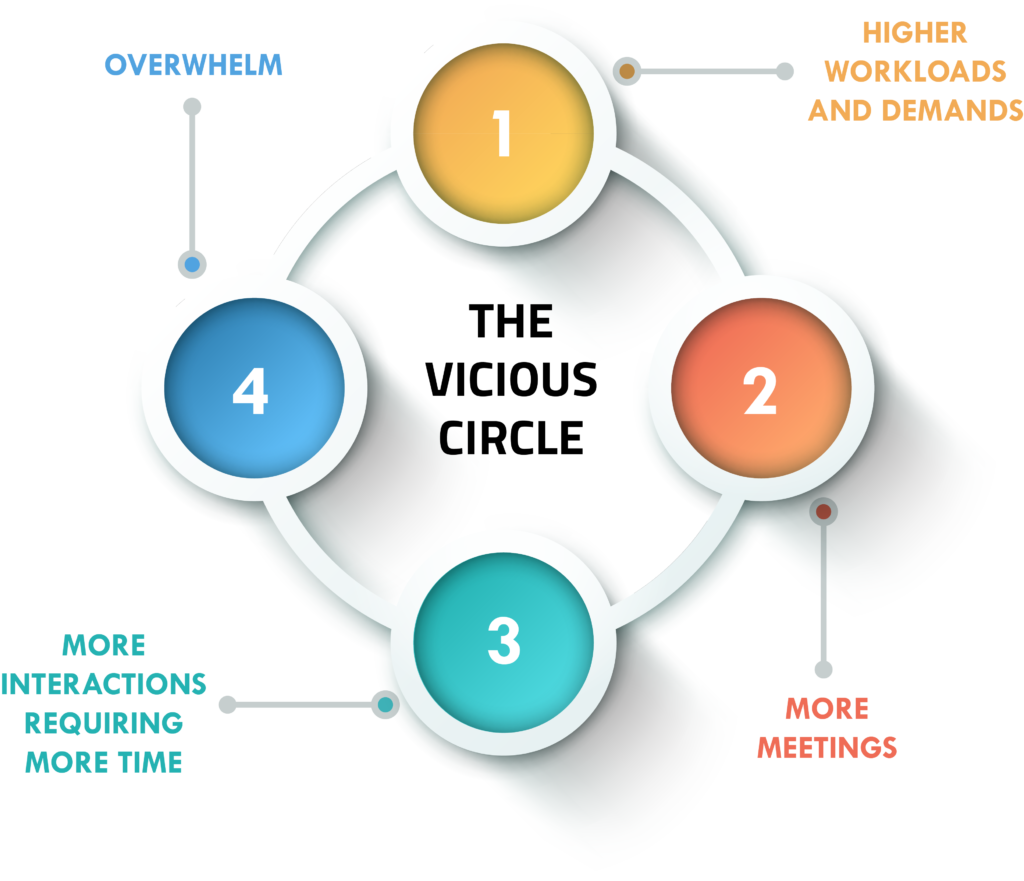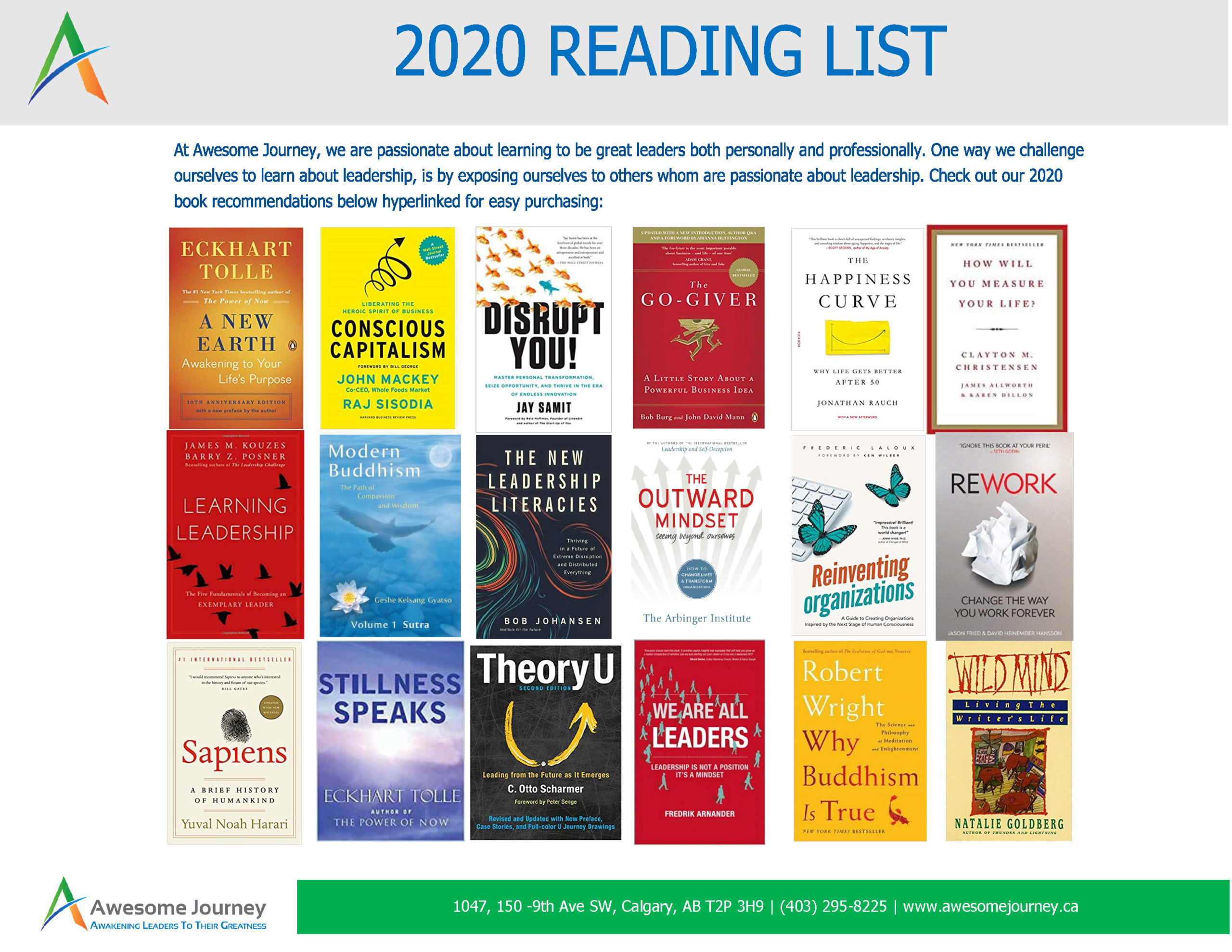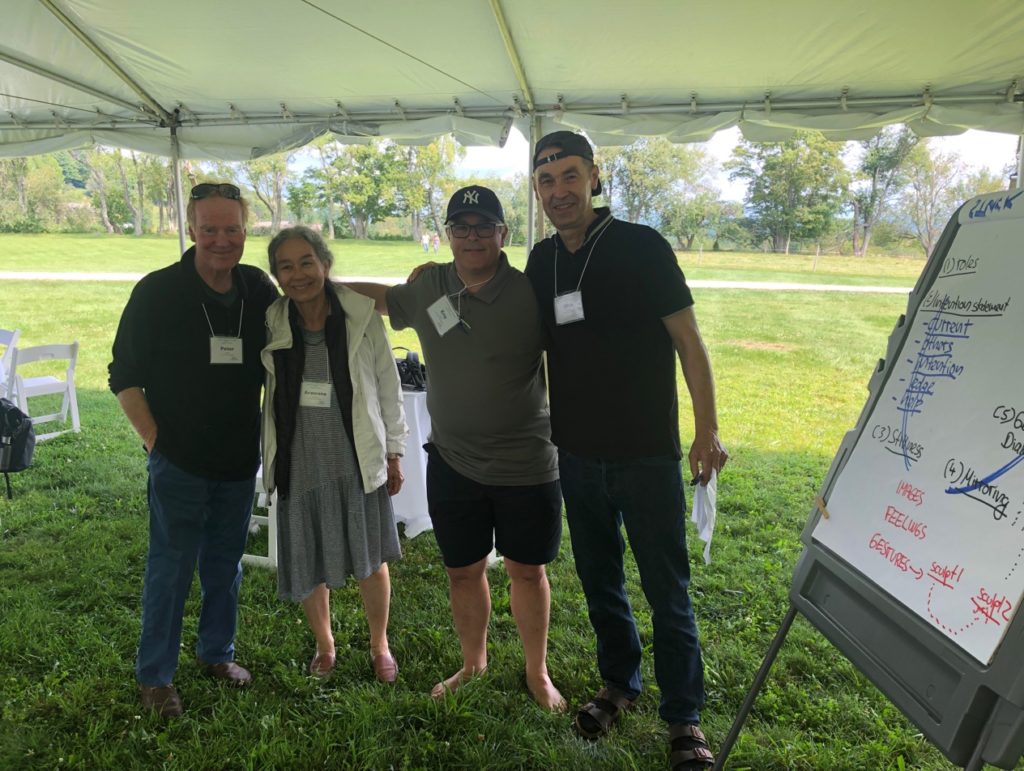How aware are you of your leadership presence?
Presence is “the state or fact of existing, occurring, or being present in a place or thing.”
Most leaders have a general understanding of what being present means, but few can translate that understanding into reality. Every moment through the day offers the opportunity to ask what I am present to?
Inquiry holds the potential to disrupt the fast-paced automatic distractions in life, to bring you to the root of what matters. When you are present, you might notice your past, present and future revealed at once, leaving you at choice to commit to what you care about.
To be present is to live in the moment, the here and now, not in the past assertions or future declarations. It is about being alert and aware of your emotional state and its impact on how you see the world and how others see you. Presence fosters intention.
While in a “presence state” you are likely to ask yourself questions like: for the sake of what am I doing this? how does the situation at hand connect with my purpose? and how do I need to act to fulfill a deeper sense of destiny?
A leader’s presence impacts a room negatively, positively, or not at all, and can be influenced between 3 ways of displayed presence:
1. Powerful Presence
A powerful leader is self-aware of who they are being with others. They are being:
-
- Collaborative – “we” vs. “I” language.
- A deep listener from a place of support and empowerment (which has others asking questions that put them into action).
- A generative communicator.
- Calm under pressure.
- Supportive of other ideas, opinions, and beliefs – which makes others feel safe in their presence.
- Accountable for their promises and agreements with others.
- A learner.
- Vulnerable – willing to say, “I don’t know” and “I need your support in finding a quality solution to this issue”.
- Trustworthy.
- Open to feedback.
- Responsible for their choices and decisions.
- Strong communicators/listeners by using direct eye contact.
- In tune with their surroundings.
- Relationship focused as well as transaction-focused – long term thinking.
You can measure when you are being a leader with a powerful presence by your impact on others. Your impact creates sustainable action with others. People leave a conversation with you, engaged, inspired, and motivated to execute on their promises made to you. People who work with you are confident at providing feedback and information that is real to support the success of the organization.
2. Forceful Presence
A forceful leader is less self-aware of who they are in the room. They are being:
-
- Accountable for their own performance and expect others to do the same.
- A listener for others from a place of “fix, help and rescue” – which has them telling others what to do to be in action.
- Exclusive with others which shows up as controlling of their environment, information, and decision-making power.
- Aggressive when others challenge their decisions or ideas.
- Less open with others when they are unsure or do not have an answer, they see vulnerability as a weakness, i.e.:” “You are paid to know and if you don’t know, go and figure it out quickly so that you can be reliable for others”.
- Less collaborative in their communication abilities:
- They like to tell vs. ask others for their ideas and opinions.
- They speak in the first person, i.e.: “I did this, I accomplished this…”.
- Their feedback tends to be critical and unsafe, i.e.: “You should have known that…”.
You can measure when you are being a leader with a forceful presence by the impact you have on others. For example, you create unsustainable action with others, or people leave a conversation with you, confused, uncertain and worried about how to be in action to support the project and how they will be supported by you. Feedback is rarely given, and open-door policies are seldom used. People who work with you learn to tell you what you want to hear vs. what you need to hear to support the success of the organization.
3. Powerless Presence
A powerless leader’s presence shows up as unwilling and inauthentic. In a conversation, they are unwilling to own their authentic voice, don’t share their ideas or make people feel like they don’t matter by saying phrases like, “sounds good, I’m sure you will make it happen, I have no comments on this topic…”.
This may leave others confused, uncertain, disempowered and lost as to how to be in action to support the issue or opportunity at hand. When a leader is not present with their team, others see you as a powerless leader because they are left in a space of uncertainty or inaction.
Practices to Support Developing A Powerful Presence:
A leader who chooses to be intentional about living a powerful presence has a set of practices that has them being self-aware of their presence (overall energy) which they bring to the moment. Here are some examples of practices:
- Healthy lifestyle – proper food choices and balanced sleeping patterns.
- A daily breathing, mindfulness, or meditation practice.
- Uses slow down techniques like “Power of the Pause”.
- Reflecting at the end of each day to support self-learning.
- Daily exercise.
- Journaling – putting their thoughts on paper to create new awareness and learning
- Learning in a community.
- Giving and receiving feedback to expand self-awareness.
- Self-care – quality sleep, time for self, time for play/fun/laughter, time for creativity and time for quality relaxation.
Want more? Check out our resource material for this:
- Article on the Power of Presence – https://www.bhavanalearninggroup.com/in-the-power-of-presence/
- Book entitled, “Leadership Presence” by Belle Linda Halpern & Kathy Lubar – https://www.amazon.ca/Leadership-Presence-Kathy-Lubar/dp/1592400868/ref=tmm_pap_swatch_0?_encoding=UTF8&qid=1602172801&sr=8-2
- Article on the Power of the Pause – https://www.bhavanalearninggroup.com/3-conditions-cultivate-attention/
- Article on Fixing, helping & rescuing – https://www.uc.edu/content/dam/uc/honors/docs/communityengagement/HelpingFixingServing.pdf














